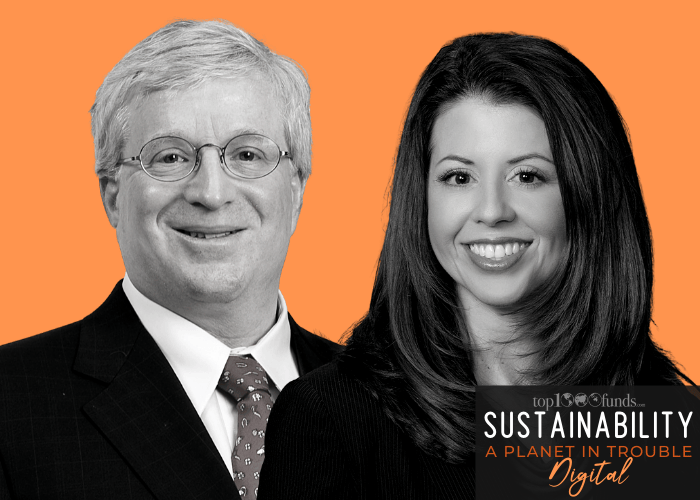Scott Kalb and CalSTRS’ Aeisha Mastagni discuss what is next for investor action in sustainability. They reflect on the dangers of funding sedition following the 6th January riots. Investors rarely consider the risk of investee companies financing extreme groups, but it threatens the very system on which institutional investment relies.
Asset owners face the uncomfortable prospect that the companies in which they invest could be funding extremist groups, some engaged in sedition. Speaking at “Sustainability Digital: A Planet in Trouble,” Scott Kalb, director of the Responsible Asset Allocator Initiative (RAAI) at think tank New America, told delegates that they might have unknowingly invested in companies funding the siege of the capital. ESG doesn’t address political spending risk, he said.
Kalb said it was a risk that asset owners need to take seriously. He said screening out political risk required better asset owner education and investors using their proxy voting power to improve corporate disclosure on political spending.
“Asset owners should adopt policies on political spending as part of an ESG framework and put their asset managers on watch to the risk, notifying them that they won’t tolerate investment in companies spreading disinformation or engaged in violent activity.”
Moreover, he said these groups threaten the very system on which institutional investors rely like the rule of law.
“If you are a good steward of capital, investing in companies that have poor transparency regarding political funding contravenes good governance.”
He said that political spending poses a systemic risk to capitalism if companies can influence an election result “to get the rules in their favour.” Adding that it is incumbent on investors to protect capitalism and the institutions that underpin it and to think about “how portfolio companies are impacting the world and externalizing costs onto stakeholders.”
Fellow panellist Aeisha Mastagni, portfolio manager at US pension fund CalSTRS agreed that funding sedition was something investors should be looking at, adding that the events of January 6th had cast political spending and contributions into the spotlight, and necessitated strong corporate board oversight.
CalSTRS directs its active stewardship to four key areas that it believes are relevant to the long-term performance of its portfolio – targeting policy makers to promote sustainable markets, corporate board effectiveness, the low carbon transition and responsible firearms.
Tools include proxy voting and engagement in a strategy that Mastagni described as a “continuum,” with CalSTRS increasingly deploying more resources to influence change.
“We pair our role as an engaged, constructive shareholder with deep financial analysis and a path to value creation,” she said.
For example, CalSTRS will support an alternate slate of board members at ExxonMobil being put forth by active ownership organization Engine No. 1, explained Mastagni.
Activists want the oil giant to ramp up investments to clean energy and adapt to the rapidly changing energy landscape.
Although CalSTRS is not part of this solicitation, she said the pension fund plans to vote and support the alternative slate.
“Now is the time to change, and we need significant change in this boardroom,” she said.
Reflecting on the work of the RAAI Kalb explained that the initiative identifies the top 25 institutional investors leading responsible investment. Asset owners are rated based on 10 principles and 30 criteria like integration, transparency and disclosure.
“We are looking for evidence of real action, trying to create a standard of excellence people can aspire to,” he said. He explained to delegates that most of the cohort is focused on climate change.
“There is an understanding that as long-term investors they have an obligation to savers and stakeholders to not invest in companies that might harm their interests,” he concluded.




